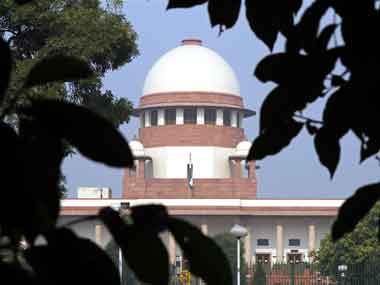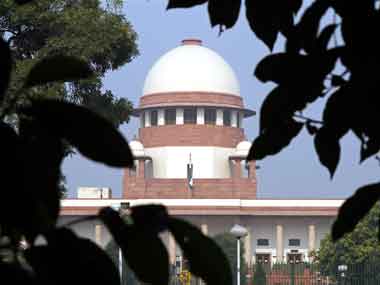The Supreme Court’s verdict directing cinema halls across the nation to play the National Anthem before a movie screening has elements that can also explain the success of the Bharatiya Janata Party (BJP) in recently concluded Assembly and Parliamentary bypolls in Madhya Pradesh, Assam, Sikkim and Tamil Nadu, and civic/panchayat polls in Maharashtra, Gujarat and Rajasthan. These victories came despite the BJP’s image taking a beating following the Narendra Modi government’s demonetisation decision. In fact, these common elements (of the Supreme Court order and the government’s demonitisation policy) add to the “global” discourse on liberalism and nationalism (including patriotism). I am using the word “global” because this debate is taking place all over the world, particularly in Europe and America. The question of whether a man or woman should remain strictly an individual with all the “rights” of one, or do they become part of a group (as a social animal) that demands some “duties” (including loyalty). [caption id=“attachment_3136540” align=“alignleft” width=“380”]  Supreme Court of India. Reuters file image[/caption] In its order, the Supreme Court has said, “The directions are issued, for love and respect for the motherland is reflected when one shows respect to the National Anthem as well as to the National Flag. That apart, it would instill the feeling within one, a sense committed patriotism and nationalism.” According to the apex court, “A time has come, the citizens of the country must realise that they live in a nation and are duty bound to show respect to National Anthem, which is the symbol of constitutional patriotism to inherent national quality.” It referred in this context to Article 51(A) (a) of the Constitution, which states that “it shall be the duty of every citizen of India to abide by the Constitution and respect its ideals and institutions, the National Flag and the National Anthem”. It seems that the court isn’t impressed by arguments presented by Left-liberals that this particular article is part of the non-enforceable “directive principles” of the Indian Constitution. Inherent in the order is the notion that it is incumbent on every individual citizen to think beyond oneself and think about the greater good of the nation. In my considered view, it’s in this same vein that Prime Minister Narendra Modi tells people to tolerate miseries and pain for some more time, as it’s a “bitter measure” that is good for the country as a whole in the long-term. It will bring unaccounted money into the national banking stream, reduce black money and curtail corruption, all of which will accelerate the national development, create jobs and reduce the gap between the rich and the poor. The point here is that individual sacrifices for collective good or national interests are needed at times. This fits into Modi’s slogans of “India First” and “Sab ke Saath, Sab ke Vikaas”. And it appears that more and more Indians have bought the logic of Modi rather than that of his Left/liberal critics (including the opposition parties), who are highlighting only individual or sectional rights, particularly in ethnic terms. More and more Indians seem to be siding with the Prime Minister, as they dislike the prospect of balkanisation of India into identity groups, particularly when those groups dismiss the nation’s centuries-old history and culture as majoritarianism. Accordingly, reactions of the Left liberals to the National Anthem verdict or about demonitisation have been very predictable: “Who are you to force me to display my patriotism?”, “Nationalism is a vital component of fascism, patriotism is the last refuge of the scoundrel”, and talking of “national interests is a manifestation of majoritarianism and xenophobia” etc. They aren’t impressed by the argument that their agenda is essentially divisive, not inclusive. In fact, they have no problems when ethnic minorities talk of having their own civil laws and disrespect national symbols like the National Anthem, National Song or Yoga, saying that these are impositions of Hinduism. And they have no issues with illegal immigration from neighboring countries and slogans challenging the unity and integrity of India. They justify casteism in Indian politics as politicisation of caste and magnify separatist outlook as essential to “democratisation” of the polity. Such examples are only illustrative, not exhaustive. It just so happens that at the intellectual level (level of the elites of the country), it has been an unequal battle between the “liberals” and “nationalists”, because the former has been overwhelmingly dominating the intellectual space (national media, educational establishments, think-tanks, NGOs, bureaucracy etc). Their influence on public policy has hitherto been inversely proportional to their number. However, at the ground level, it’s the nationalists who’re gaining momentum and succeeding. This explains the Modi phenomenon in India and the Trump phenomenon in the US. As the noted weekly The Economist found out in one of its recent issues, “All around the world, nationalists are gaining ground.” Examples it has cited include Nigel Farage of the UK Independence Party (UKIP), who played an important role for Brexit; the Rightist National Front (FN) leader Marine Le Pen having a great chance to do well in the coming French elections; Geert Wilders, leader of the anti-Muslim, anti-immigrant Party for Freedom in the Netherlands; Egypt president Abdel-Fattah al-Sisi legitimising his authoritarianism; and Turkish president Recep Tayyip Erdogan suppressing democracy for building a new Turkey. The magazine has also dealt with the phenomenon of Modi in India, Xi Jinping in China and Vladimir Putin in Russia. Among the many reasons that the magazine cited, it said, “Communication tools have accelerated the spread of the new nationalism. Facebook and Twitter allow people to bypass the mainstream media’s cosmopolitan filter to talk to each other, swap news, meet and organise rallies.” And, ironically, common men and the marginalised sections of the society (the blue-collar workers in particular) tend to repose their trust in the “nationalists”, who promise provide them jobs. However, the above explanation is not fully satisfying given the fact that the Left liberals also talk of poor and jobs. In my considered view, therefore, Jonathan Haidt’s 2012 book The Righteous Mind: Why Good People are Divided by Politics and Religion makes a better sense. A social psychologist at the University of Virginia who, until 2009, considered himself a “partisan liberal”, Haidt explains human behaviour (including the choice of voting) through a catalog of six fundamental ideas: Care, fairness, liberty, loyalty, authority and sanctity" (alongside these, he also found related themes that carry moral weight like divinity, community, hierarchy, tradition, sin and degradation). Going by Haidt, the Left liberals go by only the first three in his catalogue: Care, fairness and liberty; whereas the nationalists deal with all six, including loyalty, authority and sanctity. The worldviews Haidt discusses start with the group, not with the individual. And the group here could be families, armies and nations that nationalists exalt. “They assume that people should be treated differently according to social role or status — elders should be honored, subordinates should be protected. They suppress forms of self-expression that might weaken the social fabric. They assume interdependence, not autonomy. They prize order, not equality,” Haidt argues. “They’re common in history and are so across the globe, because they fit human nature.” Through research, he shows how people punish cheaters, accept hierarchies and do not support equal distribution of benefits when contributions are unequal. These are the ideas that one finds the most in the parties and leaders believing in nationalism, and most of them happen to be conservative. “And those who vote for them are not fools,” aren’t fools. As Haidt says, drawing from the experience of blue collared workers voting for the Republican party in the US, “They are voting for their moral interests that include moral capital — norms, practices and institutions, like religion and family values, that facilitate cooperation by constraining individualism.” However, all this does not suggest that liberalism is a lost cause. What it means is that they need to reexamine their thought processes. There are innate contradictions among the nationalists too. Trump’s “America First” implies relative isolation of the country in global affairs, as was the case between two World Wars, and hence a challenge to the phenomenon of globalisation. But Modi’s “India First” depends more and more on globalisation itself. Also, it is equally a paradox that at a higher level — Modi’s support for globalisation is something that the Left liberals will not find fault with. All told, globalisation does not go with distinctiveness and yearns for an across-the-board leveling in which everything is the same — be it in sexual conduct, values, morality or religion. In other words, there are meeting points between liberalism and nationalism. But unfortunately, it’s the liberals, as the recent events in India and the US show, who are not prepared for a debate. They are increasingly becoming uncompromising, dogmatic and often malicious, their slogans for “dissent” notwithstanding
These common elements of the Supreme Court order on the National Anthem and the government’s demonitisation policy add to the global discourse on liberalism and nationalism
Advertisement
End of Article


)

)
)
)
)
)
)
)
)



